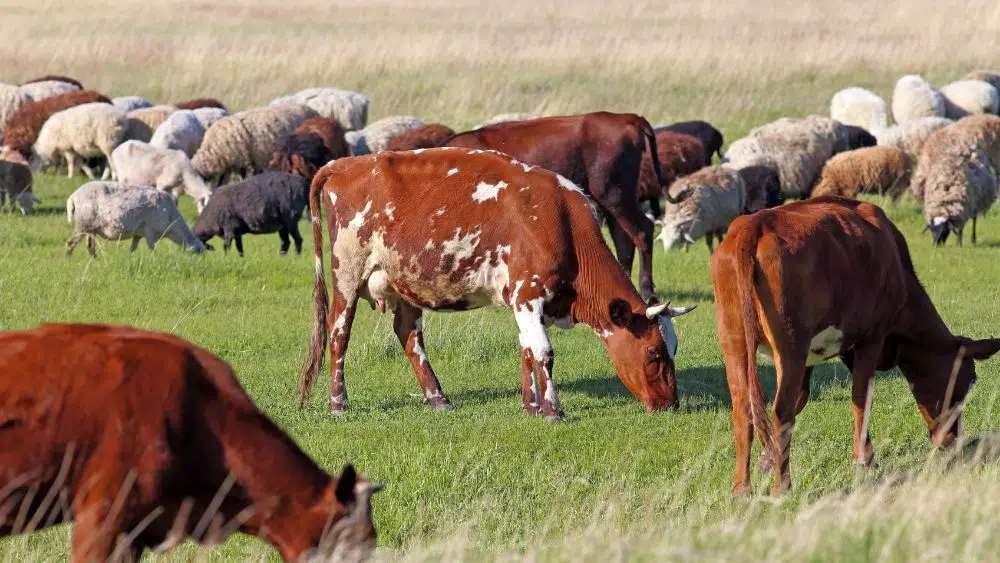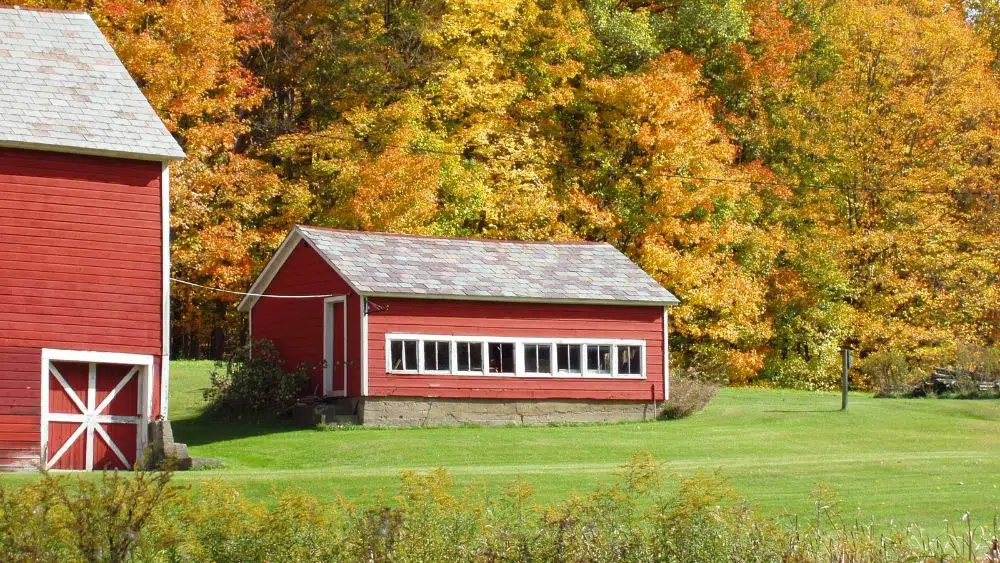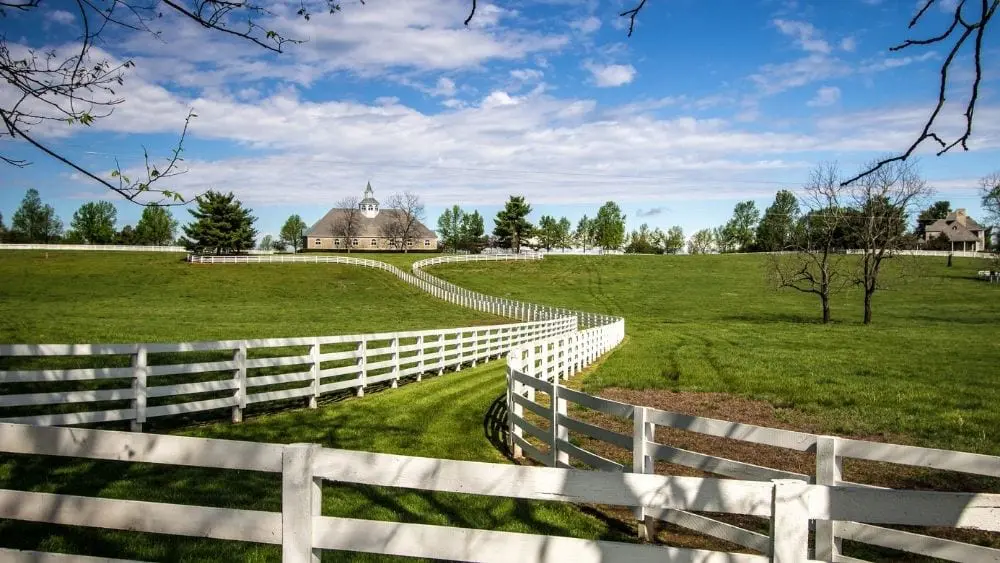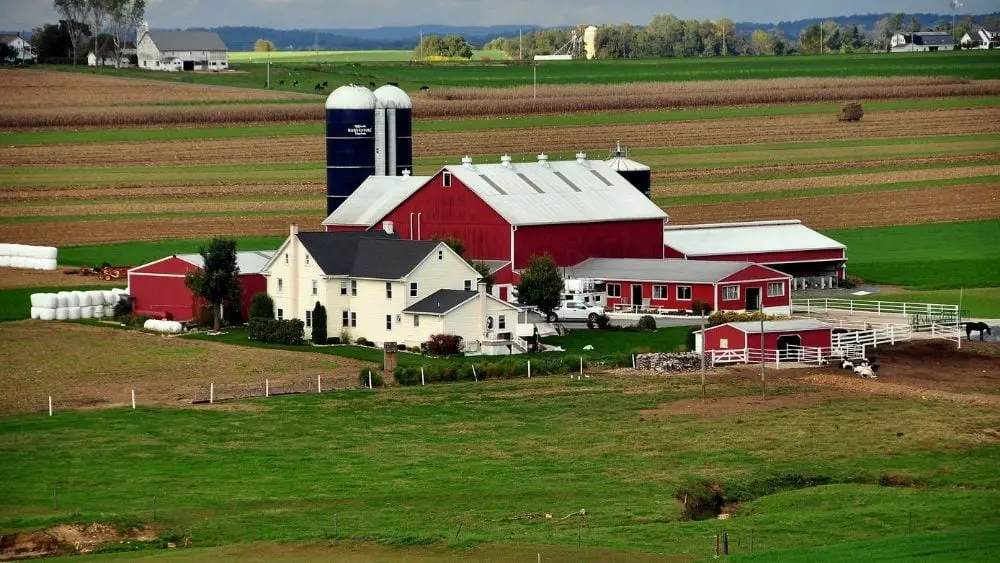
When you think of homesteading, you’ll probably think of farm animals. While urban chicken farming has become popular in the past few years, many towns have restrictive zoning ordinances that prevent homeowners from setting up micro-farms in their backyards. Plus, most HOAs aren’t too happy about the idea of homeowners raising loud or smelly animals.
Caring for farm animals can save you money at the grocery stores, whether you’re raising them for meat or byproduct. It can be a truly rewarding process and gives you the chance to start a small business from secondary animal products. This could be things like milk, eggs, or hide, and byproducts that are used in things like soap and sugar.
Pros and Cons of Raising Farm Animals

Farm animals are the most difficult part of homesteading, and it’s important to be realistic about the good and bad.
Benefits of Raising Farm Animals
- You can save money on things like eggs, dairy products, and meat.
- You can sell animal products like beeswax, honey, soap, lotion, and wool.
- You may be able to get tax benefits for raising certain farm animals
Costs of Raising Farm Animals
- Raising farm animals is a lot of work and responsibility, and costs money.
- Vet bills can be expensive, and you will lose animals to predators.
- Grazing animals can tear up your land and destroy gardens and trees.
- Farm animals limit your ability to travel.
Once you’ve decided that raising farm animals is the way to go for you and your family, it’s time to start making your land livable for whatever animals you want to acquire.
Steps to Prep Your Land for Farm Animals

Start Small
The first step is to decide what animals you want. Chickens are a common choice for beginner farmers, while cows and pigs tend to come down the line. Figure out what your skillset will allow, and then decide how many animals you want to care for. Don’t forget to think about whether the animals you choose thrive better in groups or independently.
Tackle the Land Itself
The land needs to be healthy for animals to graze and live on. This means maintaining the soil quality, removing any plants or trees that could be poisonous, and having a large enough space for them to wander.
Fencing is Your Friend
Well-maintained fences are necessary to keep animals safe. This prevents them from wandering off your property (and taking any benefits or products with them), and also from predators. Learn about the common threats and figure out what defenses are most effective. Hardwired mesh and buried fencing can prevent foxes from hunting chickens. For cows, running a barbed or electric wire over a wood or metal fence keeps them from leaning on it.
Build shelters
In the same vein as fencing, shelters serve to protect livestock from predators as well as inclement weather. Make sure shelters are sturdy (you don’t want to be replacing them after every rainstorm) and are able to be secured if needed.
Be Realistic About the Commitment

You need to be honest with yourself about some of the drawbacks. Waking up early to milk your goats for your handcrafted soap business is fun on nice days with pretty sunrises, but is awful when it’s cold and rainy. No matter how Pinterest-perfect your chicken coop looks, there is nothing pretty about finding out that a fox raided your hen house. You might have to get rid of picturesque wildflowers in favor of edible grasses to support grazing animals.
Don’t forget that you’ll need other experts involved, such as when animals are sick or mating. Make sure a local vet is willing to drive out to your home to care for animals if they’re injured or too large to be transported. If an animal should die on your property, you’ll also need to know how to legally remove the body and plan for financial setbacks.
That being said, raising animals is very rewarding and the extra income is helpful for homeowners. As long as you do your research and know what you’re getting yourself into, homesteading can be an excellent choice for homeowners.
Feeling hesitant? Don’t forget that you can also start by dabbling with fruit and veggie gardens. Planting one or two fruit trees or building a raised garden still provides self-sufficiency and the opportunity for secondary products you can sell.
No matter what you decide, be sure to embrace rural living by finding ways to enjoy the outdoors!

After graduating in 2016 from The University of Texas with a degree in English, Sanda Brown became a content writer for the BDX with a focus on website copy and content marketing.
At the BDX, Sanda helps write and edit articles on NewHomeSource.com, writes website copy for builders, and manages a team of freelancers that work on additional content needs.
 Top 5 Places to Live in Missouri
Top 5 Places to Live in Missouri